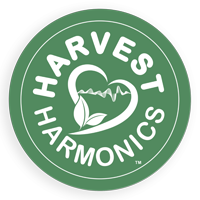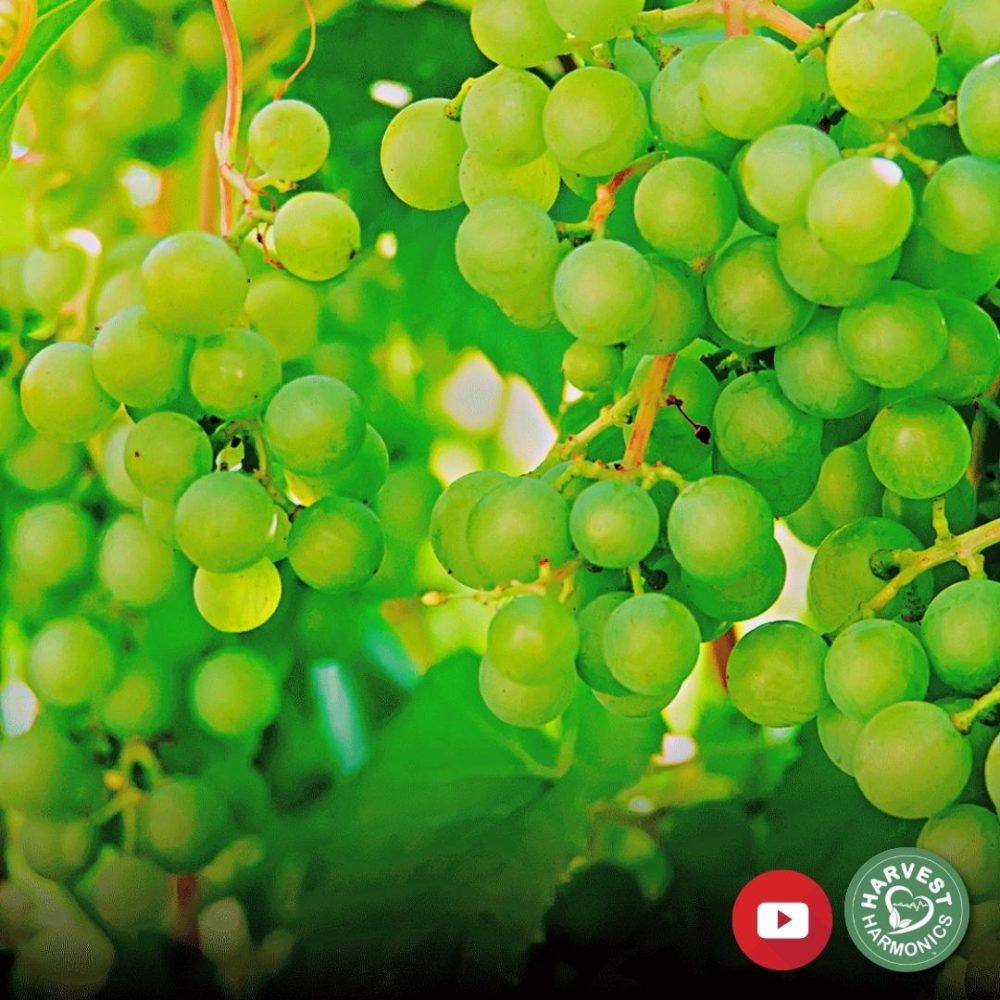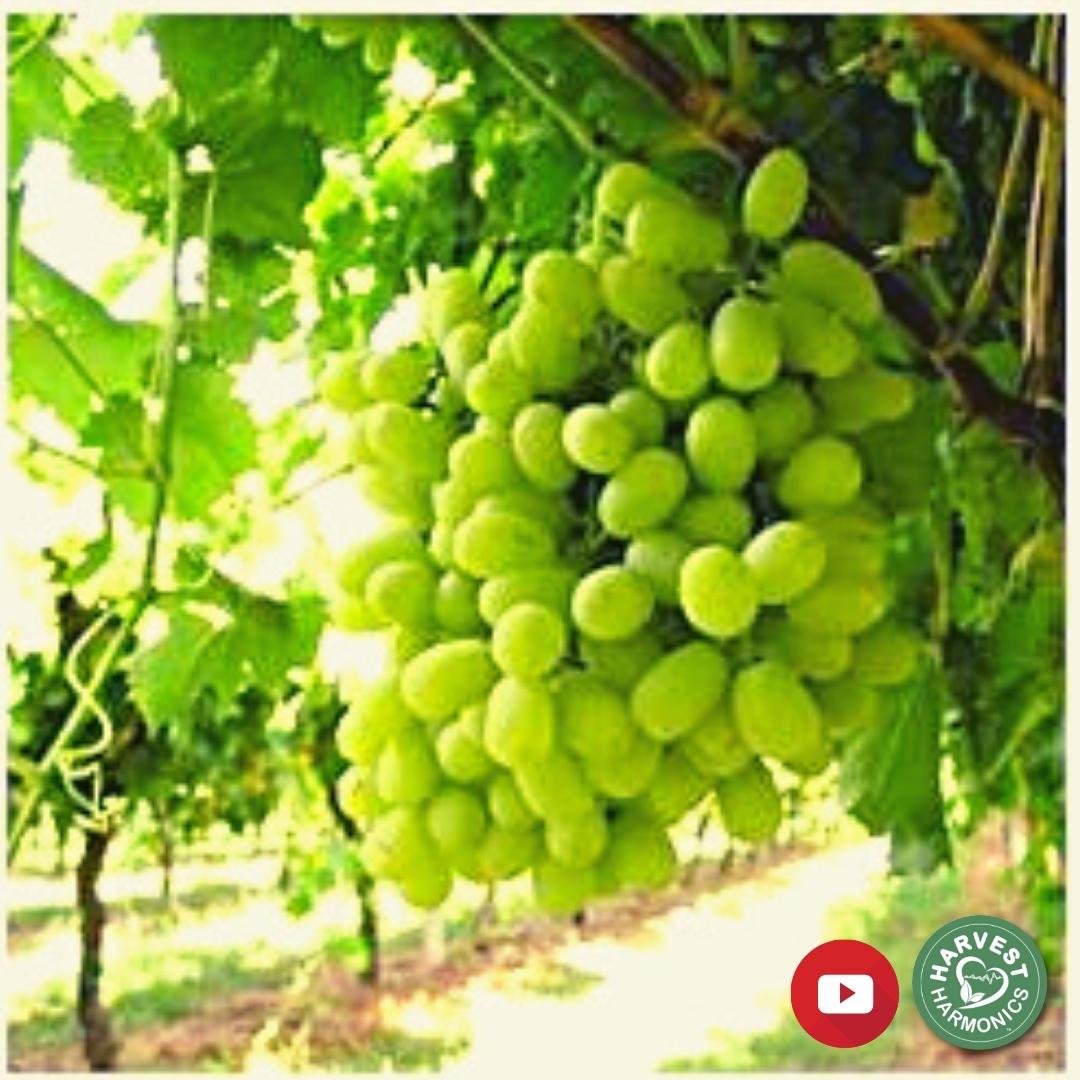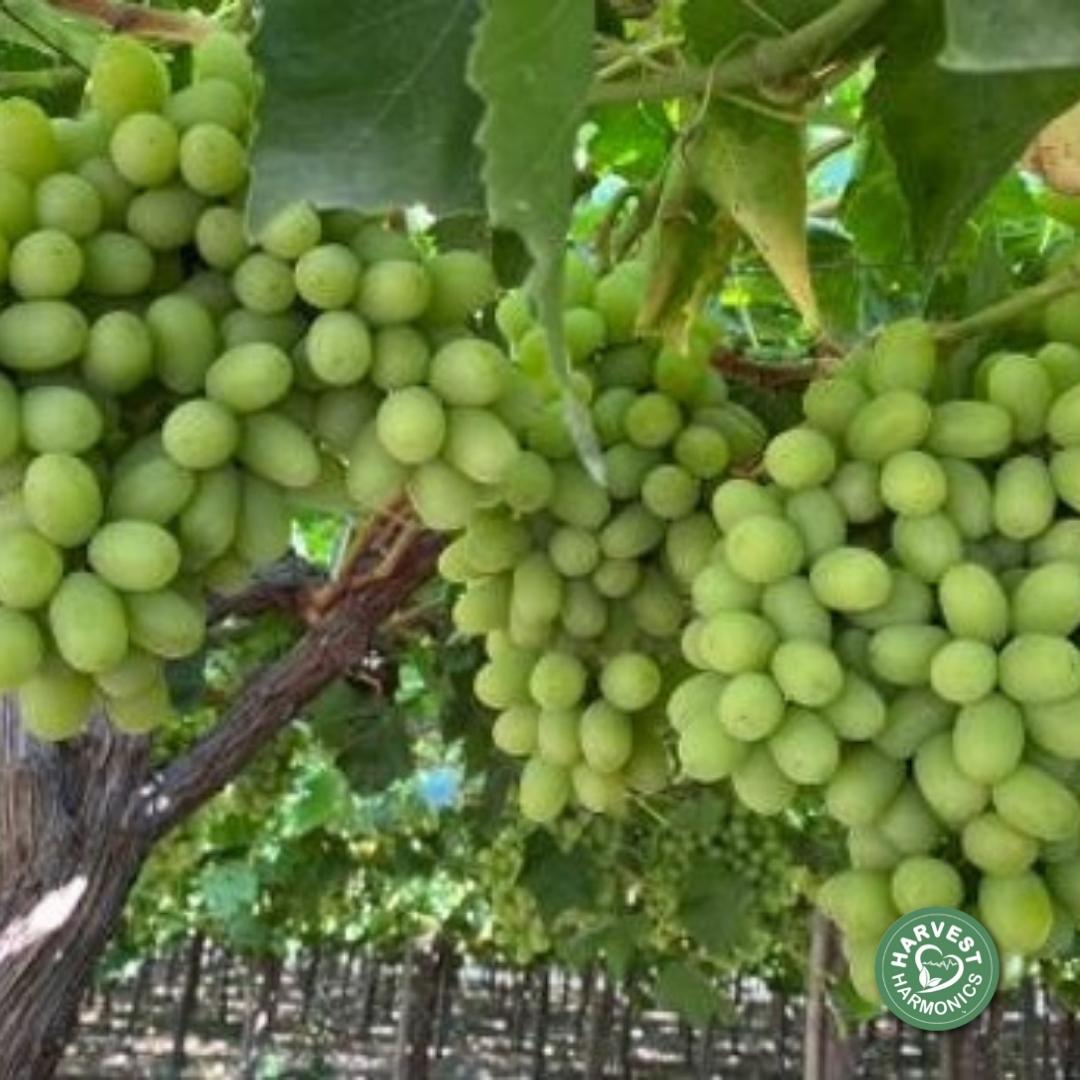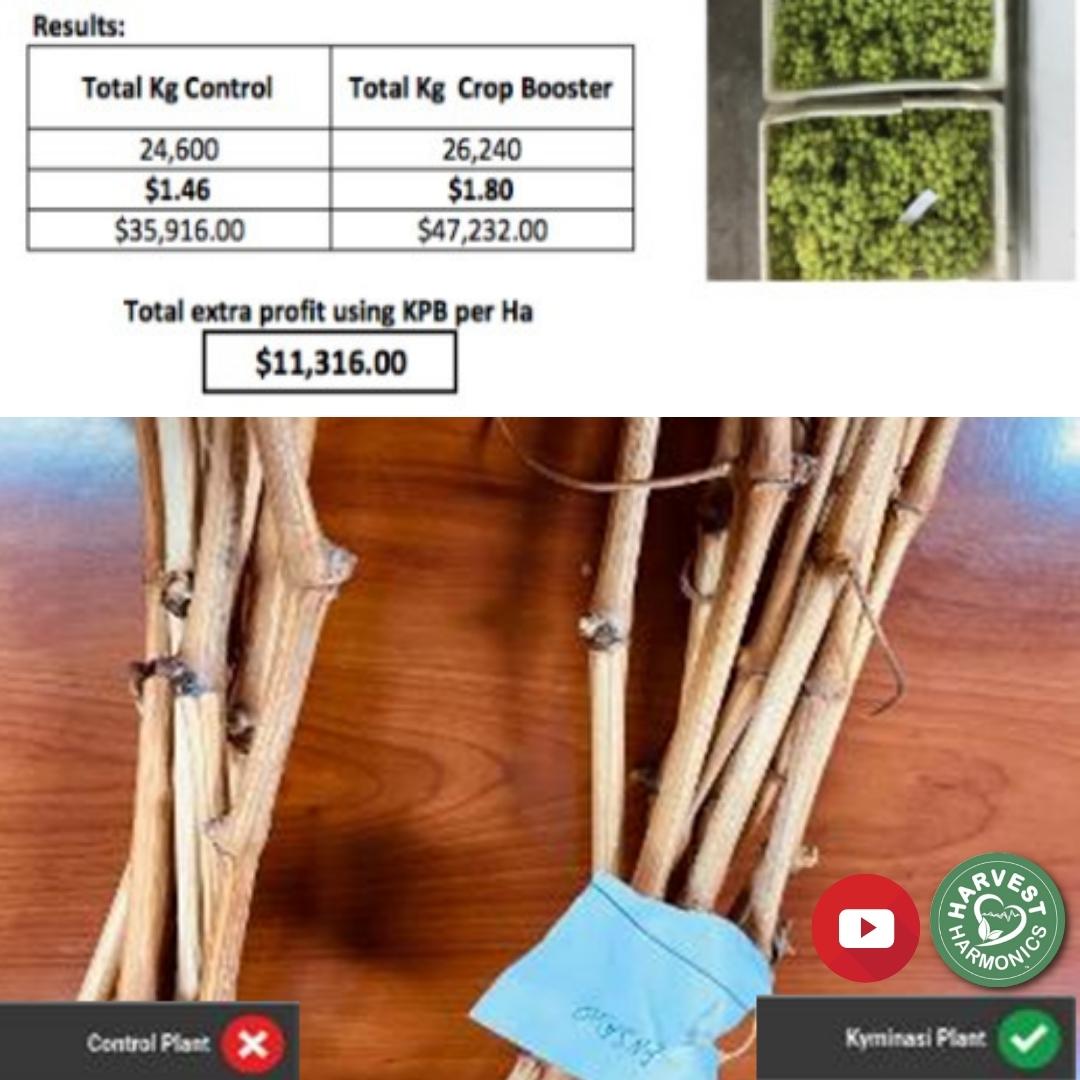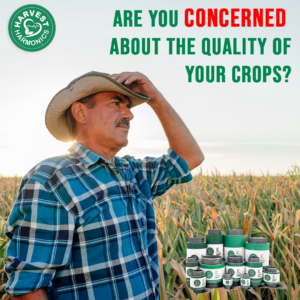Grapes
Improved Drought Tolerance & 75% Yield Increase of Grapes in Peru
Date: June 2020 (fall)
Place: Casma, Perú
Details: Kyminasi Plants Crop BoosterTM (KPCB) technology was installed on 5 hectares of Red Globe grapes at Frutos Hergu’s Farm in Peru.
Results
Drought conditions in 2020 caused a 30% water deficit that adversely impacted yields in the Casma region of Peru where this farm is located. The field that was treated with KPCB achieved greater yields and produced 75% more grapes than the control field even during an extreme drought. Overall, the KPCB field produced 52.5% more grapes than the previous year’s yield.
KPCB Grape Yield: 42 metric tons
Control Grape Yield: 24 metric tons
Reduced Mite Infestation on Thompson Grapes in Chile
Date: September 2020 (winter)
Place: Chile
Details: Kyminasi Plants Crop BoosterTM (KPCB) technology was installed on one hectare of Thompson seedless grapes in June of 2020.
Results
After 12 weeks, Eriophyid Mites were present on only 9.9% of the Kyminasi Plant Booster–treated plants as compared to 48% of the control field that was infested with mites. Crop specialists estimate a 30% loss in grape production on the untreated field. KPB provided increased pest resistance for grape plants in Chile. Graphs are provided on the next slide.
Over 65 Grape Clusters per Plant & 97% Yield Increase of Scarlotta Grapes in Chile
Date: February 2021 (summer)
Place: Chile
Details: Kyminasi Plants Crop BoosterTM (KPCB) technology was installed on 19 hectares (46.95 acres) of Scarlotta grapes at a vineyard in Chile.
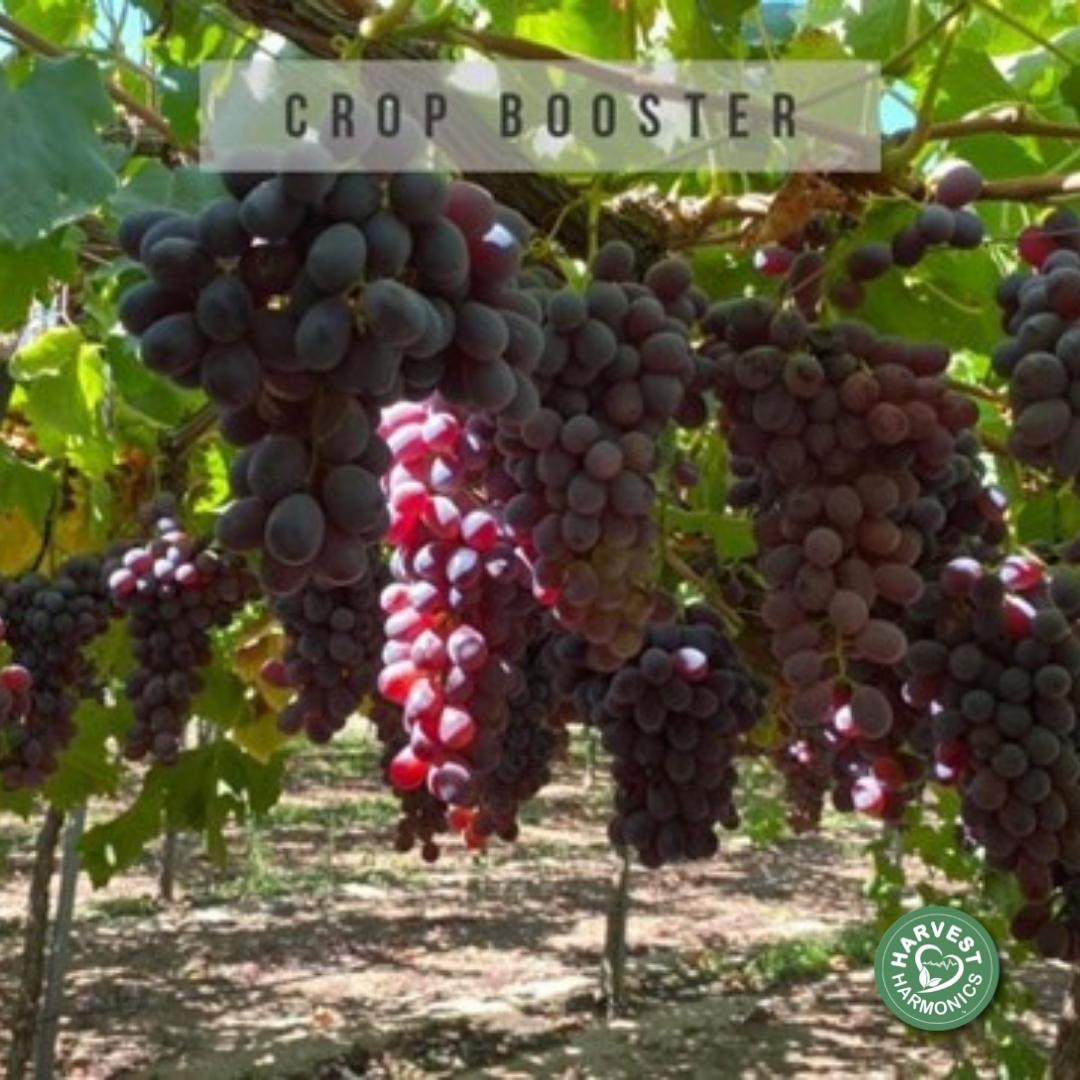
Results
The grape field that was treated with KPB technology began its harvest three weeks before the neighboring fields. The KPCB crop produced 66 grape clusters or bunches per plant with grapes that were all homogeneous in size (same size throughout the bunch). The KPCB grapes were all greater than 19 millimeters in size, and so selection during harvest was eliminated by using only one size grade for packaging. Overall, there was a 97% yield increase of grapes with KPCB as compared to the control crop.
Over 165% Yield Increase of Thompson Grapes in Chile
Date: January 2021 (summer)
Place: Chile
Details: Kyminasi Plants Crop BoosterTM (KPCB) technology was installed on a field of Thompson grapes in Chile.
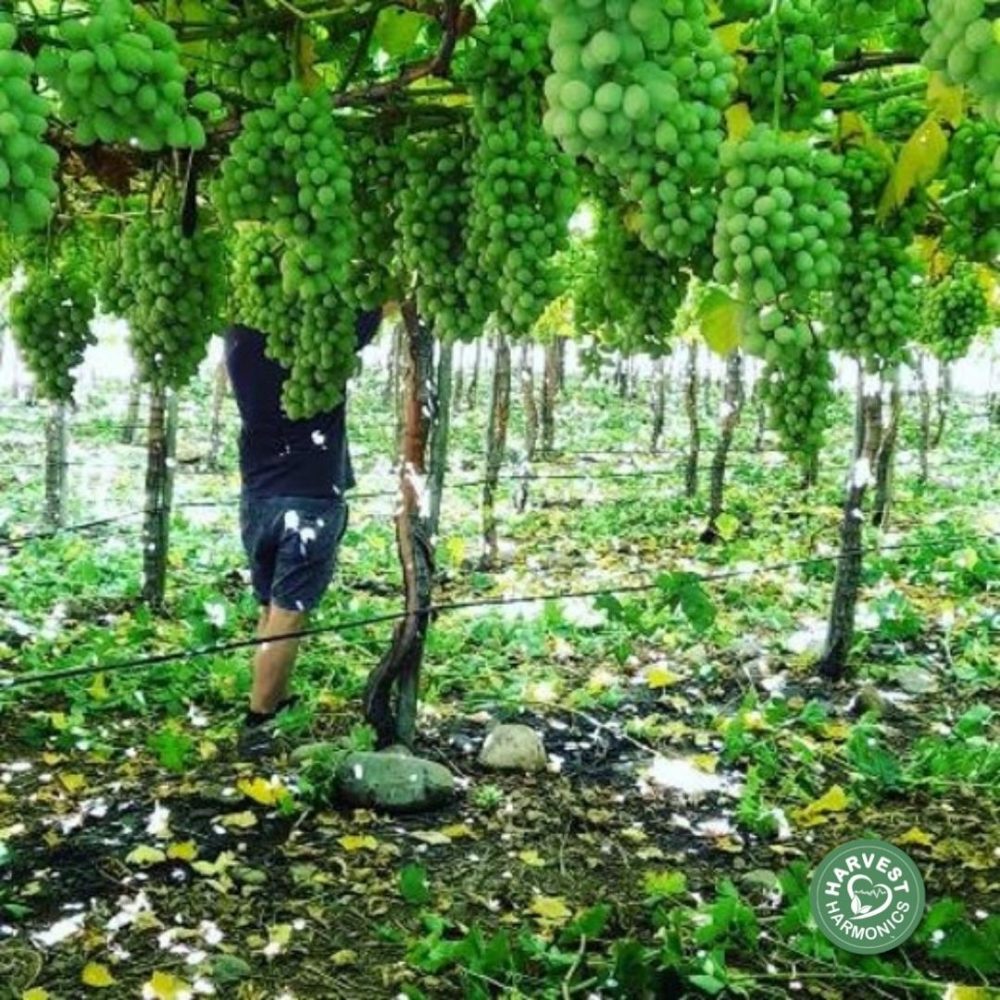
Results
The field that was treated with KPCB fully recovered in health (100%) from a strong presence of Spanish mites that had caused significant yield loss during the previous three years. Historically, this field had produced 1,200 boxes of grapes every year. With KPCB, this field was now expected to yield 3,200 boxes of grapes every year. This is a 166% increase in grape yield with KPCB technology as compared to the control field.
Increased Fruit Size & Improved Disease Resistance of ARRA Grapes in Chile
Date: February 2021 (summer)
Place: Chile
Details: Kyminasi Plant Booster (KPCB) technology was installed on 2 hectares (4.94 acres) of ARRA Grapes in a total of 15 fields.
Results
A total of 500 more boxes of grapes were obtained with improved fruit sizes from 24 millimeters (mm) to 26 mm using the KPCB treatment as compared to the control crop that had an average fruit size of 21 millimeters (mm) to 22 mm. In addition, the best production quality was obtained in the portion of the KPCB field that did not have a greenhouse covering, despite the 50 millimeters of rain that occurred that season. Even with this large amount of rain and no greenhouse covering, there was no fungal damage on the KPCB-treated grape plants as compared to the control crop. This indicates improved disease resistance of grapes with KPCB technology.
23% Higher Profit, 30% More Roots, & 33% More Vigor Vines on Thompson Grapes in Chile
Date: February 2020 (summer)
Place: Chile
Details: Kyminasi Plants Crop BoosterTM was installed on 1 hectare (2.5 acres) of Thompson grapes 44 days before harvest.
Results
CB technology increased production by 1,640 kilograms (3,615 pounds); Brix level increased by 1 degree, and lab results showed the electrical conductivity of the soil declined from 2.3 decisiemens per meter (high) to 1.7 decisiemens per meter (normal). With only 14 days of Kyminasi Plants Crop BoosterTM technology, the plant tissue analysis showed 14% more nitrogen, 10% more phosphorus, 47% more iron, and 20% more boron
Questions? Schedule your free Zoom appointment.
